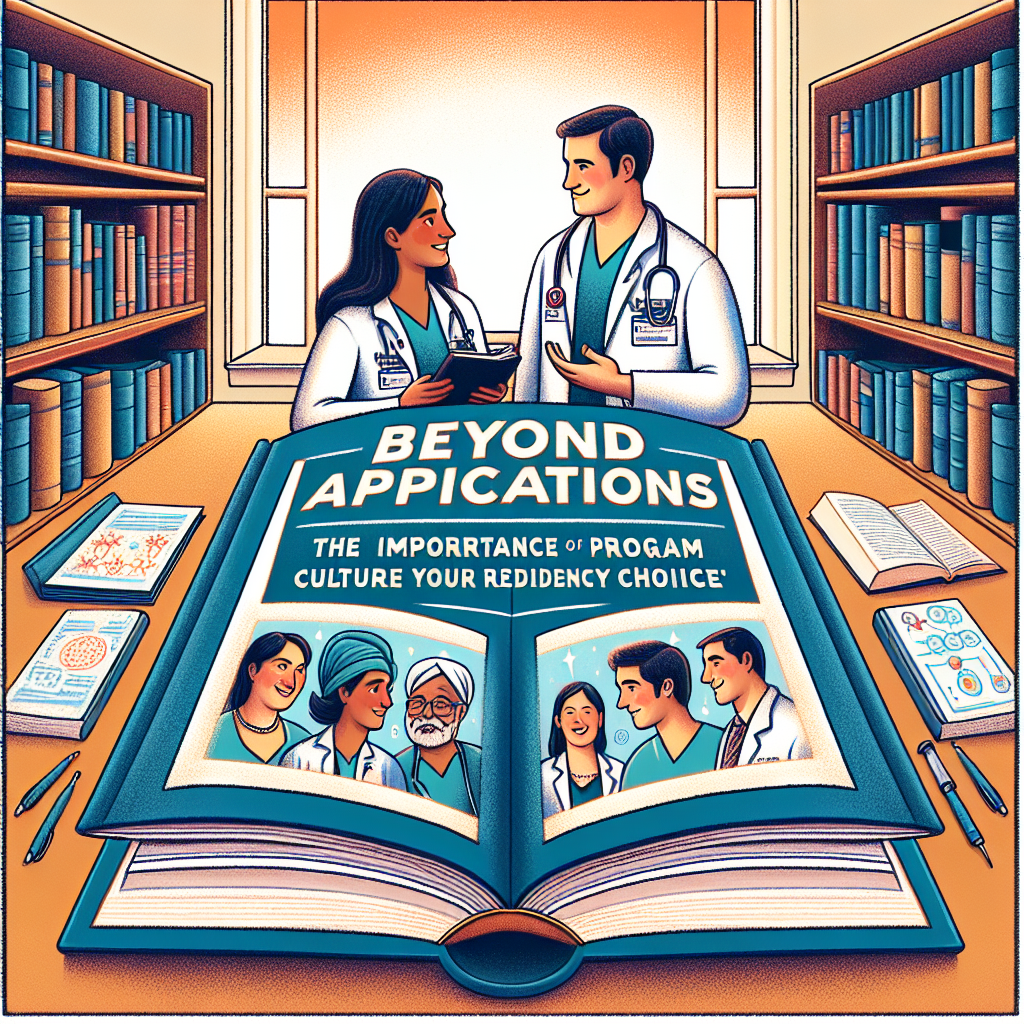When applying for residency programs, many aspiring medical professionals focus primarily on the technical aspects: board scores, clinical rotations, and research opportunities. While these components are undeniably important, one crucial element is often overlooked — program culture. Understanding the environment you’ll be part of during your residency can profoundly impact your training, well-being, and career satisfaction. In this article, we’ll explore the many facets of program culture and why it should play a central role in your residency decision-making process.
What is Program Culture?
Program culture refers to the shared values, beliefs, and practices that shape the experience of residents within a training program. It encompasses everything from how mentorship is approached, the level of camaraderie among peers, to the expectations set by faculty and administration. A positive program culture can foster growth, resilience, and a sense of belonging, while a negative culture may hinder professional development and personal well-being.
The Role of Mentorship in Program Culture
The Importance of Supportive Mentorship
Effective mentorship is vital in any residency program. A culture that prioritizes mentorship tends to nurture more competent and confident physicians. Supportive mentors provide guidance, feedback, and encouragement, helping residents navigate the challenges of rigorous training.
Building Relationships
Mentorship also fosters relationships that can last a lifetime. A program that emphasizes community among learners allows residents to collaborate, share experiences, and support each other. Strong relationships with mentors and peers often lead to a more enriching residency experience, significantly affecting career success and job satisfaction.
Values That Matter: Work-Life Balance
The Work-Life Balance Equation
The rigors of residency training can be intense, and how a program addresses work-life balance is a critical cultural aspect. In programs where personal well-being is valued, residents are more likely to experience reduced burnout and improved job satisfaction.
Compassionate Policies
Consider asking programs about their policies around time off, wellness initiatives, and how they support residents during particularly stressful rotations. Understanding a program’s commitment to work-life balance can make a significant difference in your overall experience.
Collaborative Learning Environments
The Power of Teamwork
A culture centered around collaboration creates a learning environment that encourages residents to learn from one another. Programs that prioritize teamwork foster an atmosphere where residents feel comfortable sharing ideas, questioning the status quo, and growing collectively.
Engaging Faculty
Faculty who are enthusiastic about teaching and actively engage residents in the learning process contribute significantly to a healthy program culture. When faculty members exhibit a genuine interest in residents’ development, it creates a more dynamic and enthusiastic learning environment.
Diversity and Inclusion
The Value of a Diverse Program
A program that embraces diversity and fosters inclusion can provide a richer educational experience. Diverse perspectives contribute to improved problem-solving skills and foster empathy—qualities that are essential in healthcare.
Cultural Competence
Residency programs committed to diversity can enhance your cultural competence, which is important for delivering quality care to a diverse patient population. Understanding different backgrounds, beliefs, and experiences will ultimately help you become a more effective physician.
The Impact of Alumni Networks
Connections Beyond Residency
Another important aspect of program culture is the strength of its alumni network. A program with a strong and active alumni community can provide residents with invaluable connections, mentorship, and job opportunities post-residency. When selecting a program, consider what kind of support and connections you can expect after graduation.
Success Stories
Investigate the success stories of past residents. Programs that promote a supportive and engaging environment often have alumni who are thriving in their careers, even years after completing their residency.
Conclusion: Your Residency is More Than Just an Application
While exam scores and application materials are crucial to the residency application process, program culture should not be underestimated. A positive, supportive environment can profoundly influence your learning, mental health, and career trajectory.
As you consider your options, take the time to reflect on what type of culture resonates with you. Speak with current residents, attend open houses, and look for insights that go beyond the curriculum. Remember: your residency journey is about personal growth as much as it is about professional development. By prioritizing program culture, you’ll set the foundation for a fulfilling and successful medical career.
Choosing a residency program is a pivotal moment in your life. Invest the time to find the right fit — it could make all the difference in your future as a physician.


